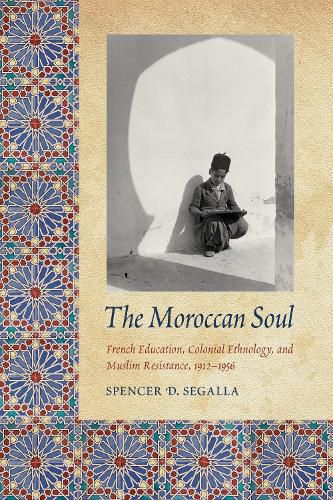Readings Newsletter
Become a Readings Member to make your shopping experience even easier.
Sign in or sign up for free!
You’re not far away from qualifying for FREE standard shipping within Australia
You’ve qualified for FREE standard shipping within Australia
The cart is loading…






Following the French conquest of Morocco in 1911 the French established a network of colonial schools for Moroccan Muslims designed to further the agendas of the conquerors. The Moroccan Soul examines the history of the French educational system in colonial Morocco, the development of French conceptions about the Moroccan soul, and the effect these ideas had on pedagogy, policy making, and politics.
Based in large part on French conceptions of Moroccanness as a static, natural, and neatly bounded identity, colonial schooling was designed to minimize conflict by promoting the consent of the colonized. This same colonial school system, however, was also a site of interaction between colonial authorities and Moroccan Muslims and became a locus of changing strategies of Moroccan resistance and contestation, culminating in the rise of the Moroccan nationalist movement in the 1930s. Spencer D. Segalla reveals how the resistance of the colonized influenced the ideas and policies of the school system and how French ideas and policies shaped the strategies and discourse of anticolonial resistance.
$9.00 standard shipping within Australia
FREE standard shipping within Australia for orders over $100.00
Express & International shipping calculated at checkout
Following the French conquest of Morocco in 1911 the French established a network of colonial schools for Moroccan Muslims designed to further the agendas of the conquerors. The Moroccan Soul examines the history of the French educational system in colonial Morocco, the development of French conceptions about the Moroccan soul, and the effect these ideas had on pedagogy, policy making, and politics.
Based in large part on French conceptions of Moroccanness as a static, natural, and neatly bounded identity, colonial schooling was designed to minimize conflict by promoting the consent of the colonized. This same colonial school system, however, was also a site of interaction between colonial authorities and Moroccan Muslims and became a locus of changing strategies of Moroccan resistance and contestation, culminating in the rise of the Moroccan nationalist movement in the 1930s. Spencer D. Segalla reveals how the resistance of the colonized influenced the ideas and policies of the school system and how French ideas and policies shaped the strategies and discourse of anticolonial resistance.